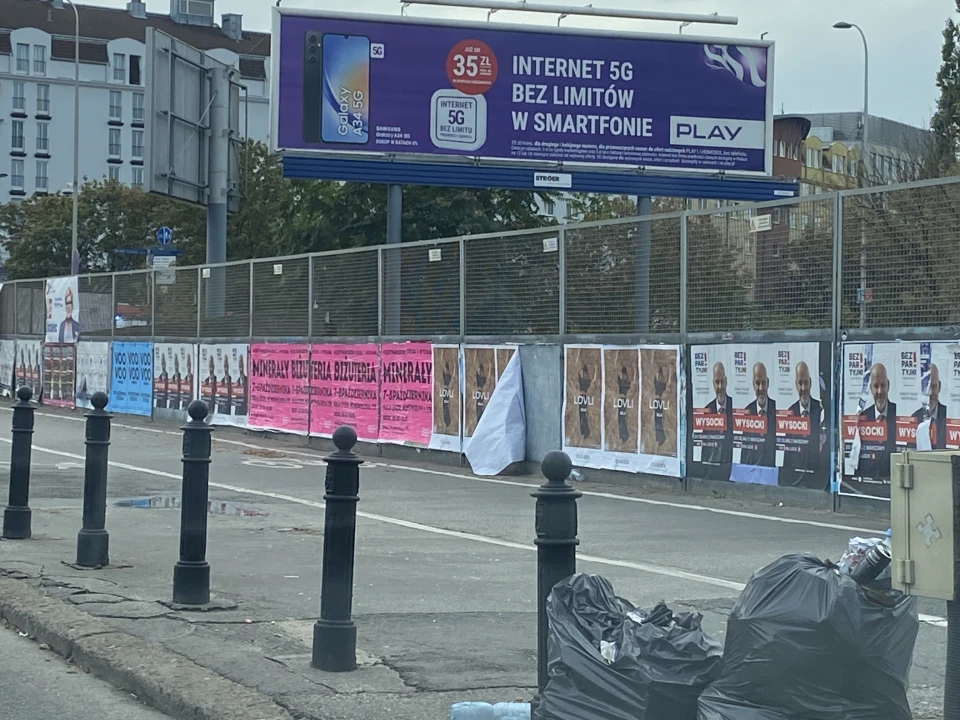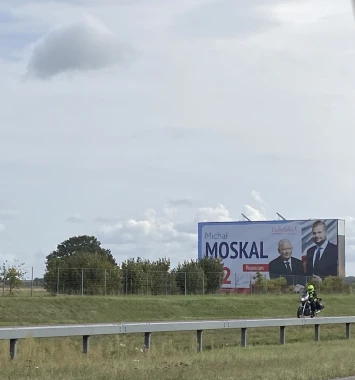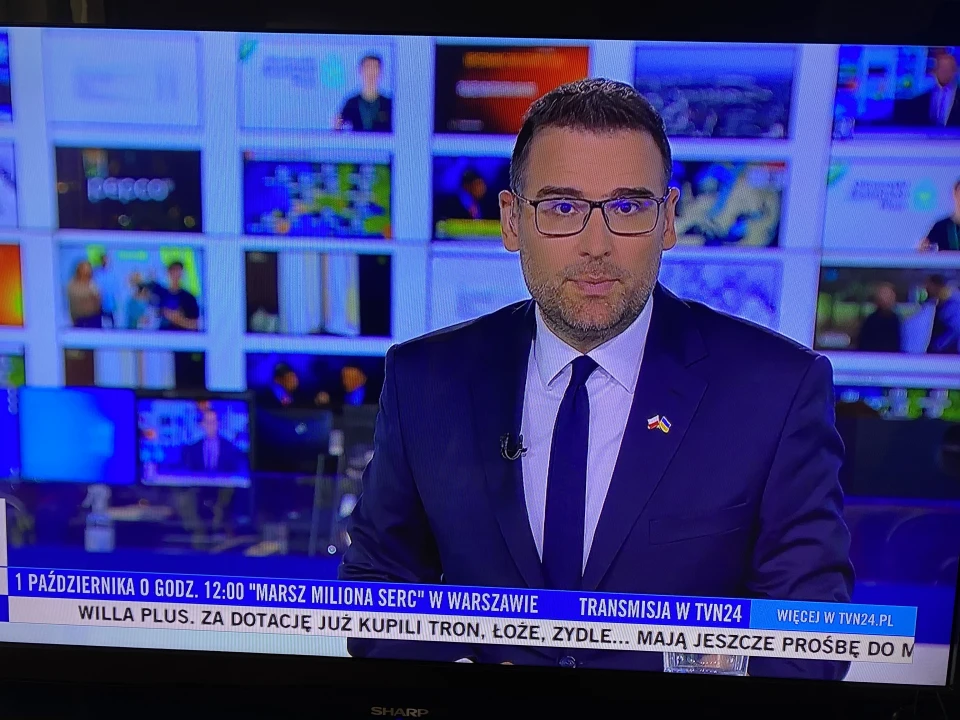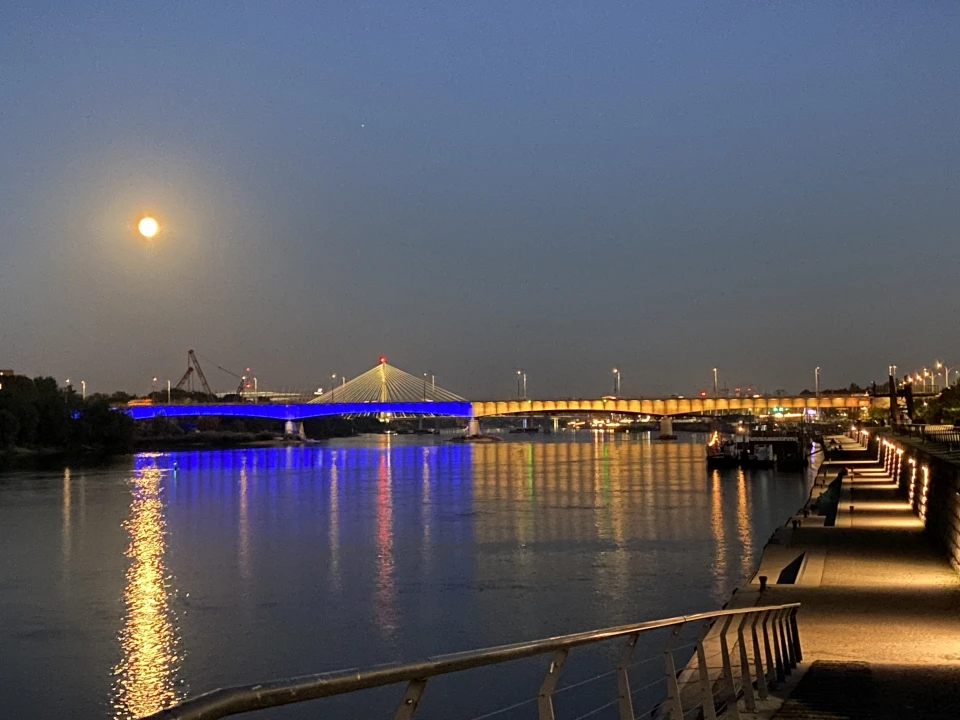
How will election in Poland end?
A week has passed since the name of the Ukrainian village of Hroza made headlines around the world. Since the beginning of this year, this is the largest number of civilians killed in a single incident by a Russian missile attack. A small village in the Kharkiv region began burying the first victims. So far, 59 victims of another act of Russian aggression have been identified
And this week I have not received a single call from any Polish TV or radio station. For Poles, I am commenting on the events in Ukraine since 24 February 2022. In the first days and months of the full-scale invasion, the schedule of broadcasts on Polish media was so tight that I barely had time to eat. It was like another one of my jobs, just a volunteer one. It sometimes started at 6 am and ended well after midnight. But I did not refuse my colleagues from Poland, because I understood how important it was for my country to remind them of the war, and I was grateful that they understood this as well. Of course, over time, when the first shock passed, there were fewer requests for inclusion. But every new act of Russian aggression that a normal person could not process in their head was immediately followed by a flurry of calls from Polish newsrooms.
However, not in the case of the village of Hroza...
And this would probably have surprised and shocked me if I hadn't been to Poland on business the day before. The main topic in the Polish news right now is the elections, which are just days away.

The election campaign is fierce. Poles call it the most brutal in the history of modern Poland. Even families are fighting over political preferences. The independent media are publishing high-profile investigative journalism about political parties and their representatives. These materials are based on facts, not fiction, such as "he had a brother, but he killed him". The opposition is discussing the estate of the current prime minister, Mateusz Morawiecki. According to journalists, he owns five apartments, three houses and several hectares of land. And all of this is worth more than 40 million zlotys (about 350 million hryvnias). But for some reason, the prime minister has been reluctant to declare his assets for eight years.
There are rumours among supporters of the ruling Law and Justice party that Donald Tusk, the leader of the opposition Civic Platform party, speaks German at home, and therefore, PiS supporters say, if he wins, he will immediately sell Poland to Germany. "It will only make things worse for you, Ukrainians," a Pole once wrote to me on Facebook.
Politicians speak to voters from TV screens. Politicians speak to the electorate from banners on the streets. However, street political advertising in Poland, if we compare it to the last elections in Ukraine in 2019, is almost invisible. There are only a few small posters on bridges. I counted maybe two large banners with politicians' faces on the 500 kilometres of the road to Warsaw. Political advertising in Poland is expensive. So, no political headquarters arranges audio-visual mockery of voters.

Another thing that is on the streets of Poland there are less Ukrainian symbols. Less than last year. Last autumn, I was also in Warsaw on business. Back then, blue and yellow ribbons, flags, and stickers were everywhere: on the windows of houses, on cars, and in underground passages. It seemed that there were even more blue and yellow colors in the public space of the Polish capital than in Kyiv. Polish TV presenters appeared on TV with small Ukrainian flags on their jacket lapels. Now, not everyone expresses their support for Ukraine in this way.
"Won't they beat you up?" I hand a blue and yellow bag of sweets to my Polish viewer and reader. I decided to thank him with a sweet souvenir from Ukraine. He had watched me on Polish TV channels, read my articles in Polish print media, and then found my Facebook profile to write words of support for Ukrainians. Later, he offered to send a copy of Gazeta Wyborcza with my article about the anniversary of the Russian invasion. As it turned out, Mr Robert had once worked as a television journalist himself.
"Lesia, don't exaggerate, I beg you! You'll see, the elections will be over and the tension between our countries will ease. It's all politics! Our government is deliberately quarreling with yours to score points. Ordinary Poles support you," my new Polish friend assures me.

But my Ukrainian friend, who works as a journalist in Poland, notes that the attitude towards Ukrainians here has changed a bit recently. A little bit because of politics, a little bit because of the behavior of Ukrainians themselves.
We go with her to watch Agnieszka Holland's acclaimed feature film The Green Border (which, by the way, also deals with Russia's full-scale invasion of Ukraine). In the underground car park of one of Warsaw's central shopping centres, where there is a cinema, we also see Ukrainian cars. They are recognizable not only by their number plates, but also by their size and make. They are often large sedans and premium crossovers. And often, they are driven by men of military age. And women walk to these cars carrying huge shopping bags from the shopping centre. "And, at the same time, they do not neglect to take Polish aid for refugees," my Ukrainian friend adds sadly. Do the Poles notice this? Of course they do. They are not blind. In addition, Ukrainians typically disregard traffic rules when driving. Some Ukrainian drivers sometimes perceive the lane reserved for public transport as a lane to get around a traffic jam. They feel at home.
And the Poles can also hear. They hear the Russian language. There is a lot of it on the streets of Warsaw. I myself was twitching over and over again when passers-by spoke Russian here and there. Because back in Ukraine, you somehow understand who is who. But in Poland, this Russian-speaking passerby can be not only a Ukrainian, but also a Russian or, for example, a Belarusian, who is not marked as being against or for the war in Ukraine.
"Why do you, Ukrainians, speak the language of those who attacked you?" a listener of the Polish radio station Tok FM once asked me. And, despite the fact that I briefly tried to explain all the historical and not only peculiarities of the functioning of the Russian language in Ukraine, she was still not satisfied with the answer. Poles have a good historical memory. Several centuries ago, they were also affected by Russification. And they have not forgotten what Poland was turned into during the communist era. At that time, by the way, Russian was taught as a compulsory language in Polish schools, but Poles did not like it anymore.

Interestingly, in the Polish school where my Ukrainian friend's daughter studies, there is a rule: foreign-speaking students must speak Polish not only in class, but also during breaks.
- "In order to practice the language," she explains.
- "A good rule!" I say. "We should introduce it to our schools, so that Ukrainian children can practice their Ukrainian.
Our Polish friend, whom we met for coffee in Warsaw, focuses her attention on something else: it is not easy to learn physics, chemistry and other subjects in a language you do not understand. "Poor kid!" she laments, "Even though Polish is my mother tongue, I didn't understand half of what those textbooks were about!"
After discussing Polish school, we return to the topic of the war in Ukraine and the elections in Poland. My Polish friend asks us if we can see the end of the war. My Ukrainian friend and I just shrug our shoulders.
"How will the elections in Poland end, Monika?" we ask her. And she doesn't know the answer either. The situation is still 50-50. And a lot depends on the outcome of the elections in Poland: whether it will be democratic or slide to the level of Orban's Hungary.
"But no matter how we vote in the end," Monika reassures, "don't worry! Poland and the Poles will still be on your side! They will not leave you alone in the war with Russia."
- News













































